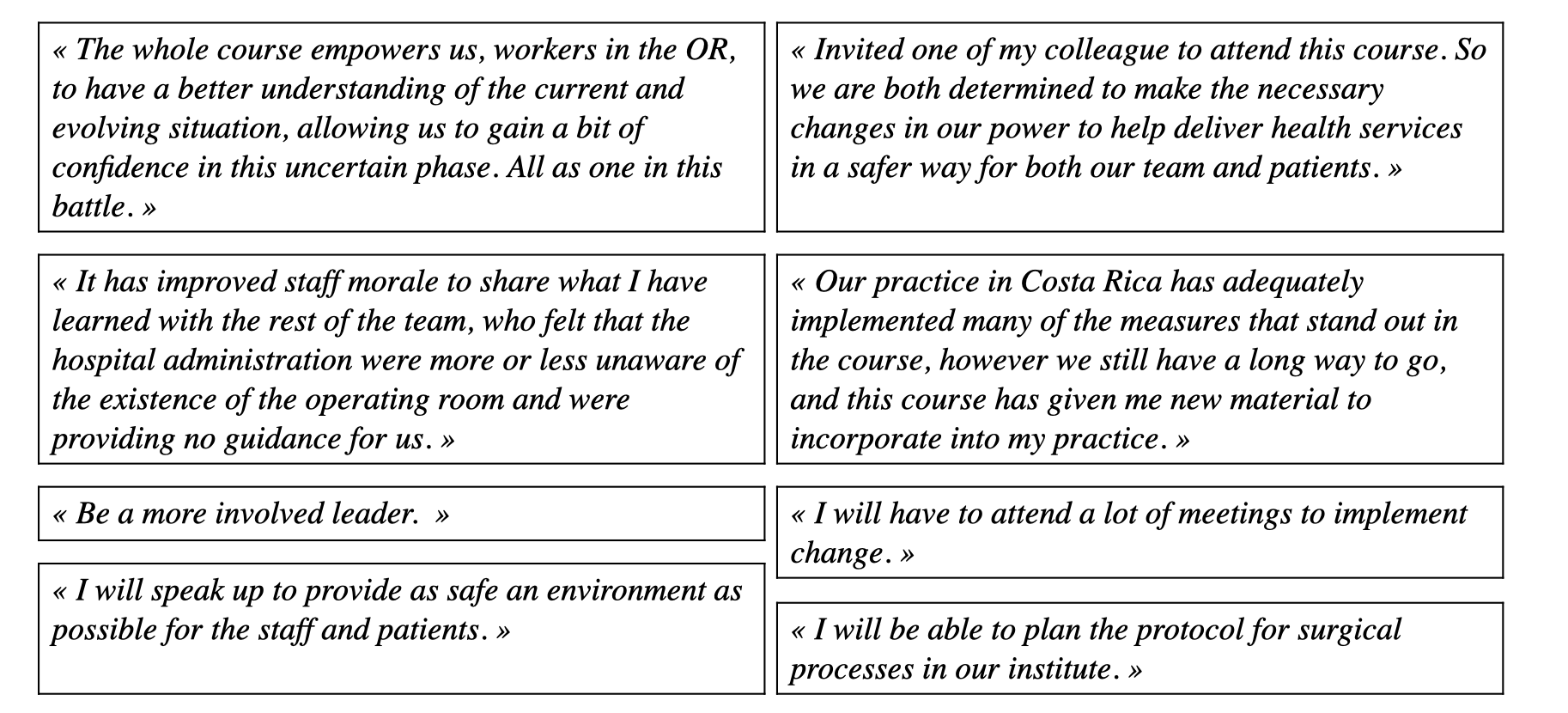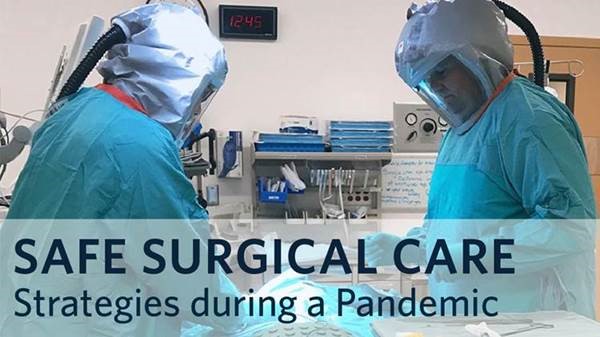The UBC Branch for International Surgical Care, Continuing Professional Development and Extended Learning have developed a free, online course, Safe Surgical Care: Strategies during a Pandemic.
Register to understand how to define and maintain essential services during the COVID-19 pandemic.
Through 5 modules, this course aims to inform surgical teams of the risk during pandemics, prepare them to respond appropriately, give them tools to ensure their safety, build pathways to maintain specific surgical services and mitigate long term impacts. The course includes real-life case studies, clinical examples, physician-led discussions, expert interviews, interactive quiz questions, and curated resources.
Register here: https://ubccpd.ca/course/safe-surgical-care
Course Instructors: Dr. Emilie Joos and Dr. Brian Westerberg
Target audience: Healthcare providers involved in the delivery of surgical care in both high and low resource settings, including, but not limited to: surgeons (all specialties), anesthesiologists, physicians with surgical skills (family physicians, clinical and medical officers), surgery and anesthesia trainees, operating room (OR) nurses, operating room (OR) technicians, respiratory therapists, perfusionists, occupational therapists, physiotherapists.
Accreditation: Up to 20.0 Mainpro+/MOC Section 3
Module 1: What a Surgeon Should Know About Pandemics
Module 2: Surgical Surge Response for Pandemics —Learn step-by-step, the measures that need to be implemented and what factors need to be taken into consideration.
Module 3: Protection of the Surgical Healthcare Workers — Proper planning and prevention strategies to protect health care providers involved in the delivery of surgical care.
Module 4: Defining and Maintaining Essential Services —Design pathways for maintenance of access to specific essential surgical services.
Module 5: Global Impact and Ethical Considerations —Demonstrate leadership in the surgical response to pandemics and identify the relevant local, national and international key actors in the pandemic response.
We are pleased to have received positive feedback on our pandemic course. Read some the comments from our enrolled participants here: 

